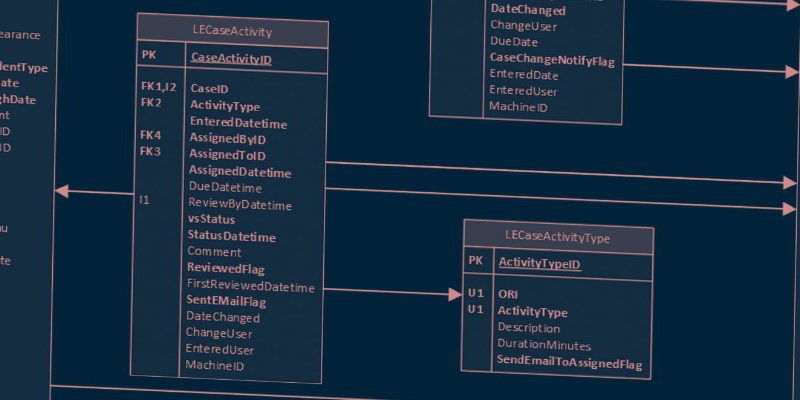-

What I Learned From Making Scores of Public Records Requests for Police Data
The Trace dug into how police departments tracked criminal cases around the country. Here’s how their data can help you file more effective public records requests.
-

Requester’s Voice: The Washington Post’s Steven Rich
Steven Rich, the database editor for the investigations team at The Washington Post, recently gained access to a database that traced every pain pill distributed across the US between 2006 and 2012. The database provides a look at where opioids have been distributed by which pharmaceutical companies, and shows that the federal government has long been aware of the scope of the opioid crisis. Rich spoke to MuckRock about taking advantage of a lawsuit to gain access to the Drug Enforcement Administration pain pill database and how to use public records to report on private companies.
-

This week’s FOIA round-up: ICE uses driver license databases to target immigrants, a Navy admiral abruptly steps down amid email scandal, and activists push back against police gang databases
In this week’s FOIA round-up, records show federal law enforcement officials combine facial recognition software with drivers liscened databases to track undocumented immigrants, an admiral slated to become the next U.S. Navy chief abruptly retires after damaging emails are released, and legal rights groups raise questions about the constitutionality of gang policing.
-

This week’s FOIA roundup: taxpayers covered Trump’s bar tab, USA TODAY debuts police misconduct records database, and the D.C. Metro is sued over customer satisfaction survey records
In this week’s FOIA roundup, records reveal that taxpayers paid for a Mar-a-Lago liquor bill, USA TODAY starts a national police misconduct records database, and the D.C. Metro is sued over customer satisfaction survey records.
-

New bill in California aims to tighten up animal research reporting at the state level
According to People for the Ethical Treatment of Animals, as many as 100 million animals are used in U.S. laboratories every year. In order to have a better understanding into these practices in California, Assemblymember Brian Maienschein introduced new legislation to provide added transparency into animal research reporting.
-

Requester’s Voice: The Sovereign Bodies Institute’s Annita Lucchesi
Annita Lucchesi, a doctoral student and freelance cartographer, has filed extensive FOIA requests to create the first centralized database on missing and murdered indigenous women. Lucchesi shared her experiences navigating a system that refuses to keep track of this data.
-

Share your #FOIAFriday inspiration, win free swag!
Have a clever request you want to share with other requesters? Now’s your chance as we’re building the ultimate directory of FOIA and public records ideas to help new requesters get inspired while showcasing how valuable public records are in keeping government open and accountable.
-

The Secret Scandals of the Trump Administration Project enters the new year
A little more than a month after MuckRock launched The Secret Scandals of the Trump Administration project, we’ve submitted dozens of FOIA requests, and received a handful of excellent tips from our readers. A number of these tips have been especially helpful: we’ve even heard from former government employees with first-hand knowledge of potential scandals in some government agencies.
-

This week’s FOIA round-up: CIA secrecy around torture suspect’s body, journalists create a police use of force database in New Jersey, and the University of Arizona spends $1.4 million on legal fees
For this week’s FOIA round-up, the Central Intelligence Agency won’t tell the family of a tortured suspect where his body is, journalists file over 500 public records request to track police use of force in New Jersey, and the University of Arizona spends big money on NCAA corruption investigations.
-

Using records to inspect your snacks, understand Chicago surveillance, and following the money in law school gifts
Public records helped tell some important stories this week, ranging from the hidden dangers of the food we eat to the data that increasingly shapes our lives. Here’s some inspiration for your own transparency fight.